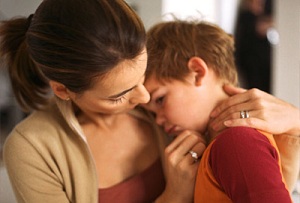 You might have heard that “love is the glue” that holds us together. I’d like to make a case for mindfulness as a similar connecting agent. In thinking of the work I am passionate about offering at Counseling on Capitol Hill, I’ve discovered that the various offerings have a common theme. What is it that couples counseling, Positive Discipline parent education, individual therapy, mindfulness coaching, and Family Therapy have in common?
You might have heard that “love is the glue” that holds us together. I’d like to make a case for mindfulness as a similar connecting agent. In thinking of the work I am passionate about offering at Counseling on Capitol Hill, I’ve discovered that the various offerings have a common theme. What is it that couples counseling, Positive Discipline parent education, individual therapy, mindfulness coaching, and Family Therapy have in common?
Each of these offerings are about relationships, with ourselves, partners, kids, spirituality, and community. All of these relationships or domains depend on capacity and resilience.
When a child breaks a treasured dish, or tracks mud onto a newly-cleaned floor, it takes resilience to remember our compassionate self. If we see the experience of what is happening as larger than our capacity to tolerate, we send ourselves into crisis mode. In fight or flight mode, we don’t have access to clear thinking, empathy, or compassion. It is a good bet that if we are not prepared to handle this common occurrence, we will say or do something that we will regret.
What helps us develop capacity and resilience? The practice of mindfulness—with regard to our thoughts, emotions, sensations, and more—allows us to develop these abilities. Take the basic practice of awareness and counting of the breath, where we sit and bring attention to our normal breathing (available in most introductory books and articles, and demonstrated on my website’s mindfulness page). We set a timer for five minutes. During that time we note our “out breath” and our “in breath.” As with most attempts at concentration, we soon notice distracting noises, thoughts, and smells. We become aware of what is distracting us and then return to the simple focus on breath. Although it is a simple act, it is a very powerful way to develop resilience and capacity over time.
One wonderful and commonly-reported experience is that after meditating daily for a few weeks, we discover humor around the troubling eddies of thought that our minds often get stuck in. When my mind takes me back down familiar routes of thinking during mindfulness practice, I often chuckle at myself, noticing the dogged and familiar tendency before returning to my chosen focus. Humor is a sign that the door to resilience and greater capacity has been cracked open. What once took up my whole mind and started a heated reaction of frustration is now a bit smaller and doesn’t take up all the space.
I have seen similar developments in capacity with couples when they become familiar with their old patterns of disconnection. Once that pattern is named, it is easier to recognize. Sometimes a funny name helps too: we don’t want to go down that “toilet bowl” again! Another way of talking about capacity is how we say that we gain “distance” from things. Mindfulness practice and emotionally focused couples therapy both help create a bit of distance from and awareness of troubling patterns of disconnection.
Positive Discipline parent education (PD) also calls on us to maintain the space between ourselves as adults and the children and teens who we care about. PD is based on the observation that most negative behavior is based on a child’s mistaken belief about themselves or a mistaken attempt at getting a need met. For example, a child’s persistence might become annoying when they are acting on the mistake belief, “I don’t matter unless I am the center of attention.” Again, our work of developing capacity and resilience leads us to recognize the pattern and not get pulled into reacting to it.
Mindfulness coaching, individual, and family therapy also offer us the opportunity to recognize patterns and respond to ourselves and our loved ones with greater capacity. Greater capacity—knowing that we are not defined by a particular thought, behavior, or experience—allows us to have greater compassion. We’ve come full circle, as it is clear that our increased resilience is based on seeing who we are in relationship to our experience, rather than what happens. With increase capacity and resilience, it is a short leap to the belief that we are all trying to connect with others and our desires, and that sometimes we forget that others are good people in the same game.
Though it takes practice to entertain and maintain this perspective, through it we are able to approach and find balance in all five domains of relationship: personal, partnership, parenting, community, and spirituality. Instead of having to practice and maintain five things at once like a circus performer, we can intentionally choose to be in a few of our experiences each day. No matter how many times we get pulled off center, we can always choose to pull out one of the practices that helps us reground, relax, and relate. Whether you do mindfulness practice, therapy, playtime, tai chi, dancing, yoga, walking, cooking, or more as a way to feel better and reintegrate your five domains, your loving attention to yourself is developing more resilience and capacity in yourself and in the world. Keep up the good work!

The preceding article was solely written by the author named above. Any views and opinions expressed are not necessarily shared by GoodTherapy.org. Questions or concerns about the preceding article can be directed to the author or posted as a comment below.

 Staying Present and Open to Life
Staying Present and Open to Life Breathing Lessons for Coping with Grief
Breathing Lessons for Coping with Grief 9 Ways to Be Present and Practice Everyday Mindfulness
9 Ways to Be Present and Practice Everyday Mindfulness

